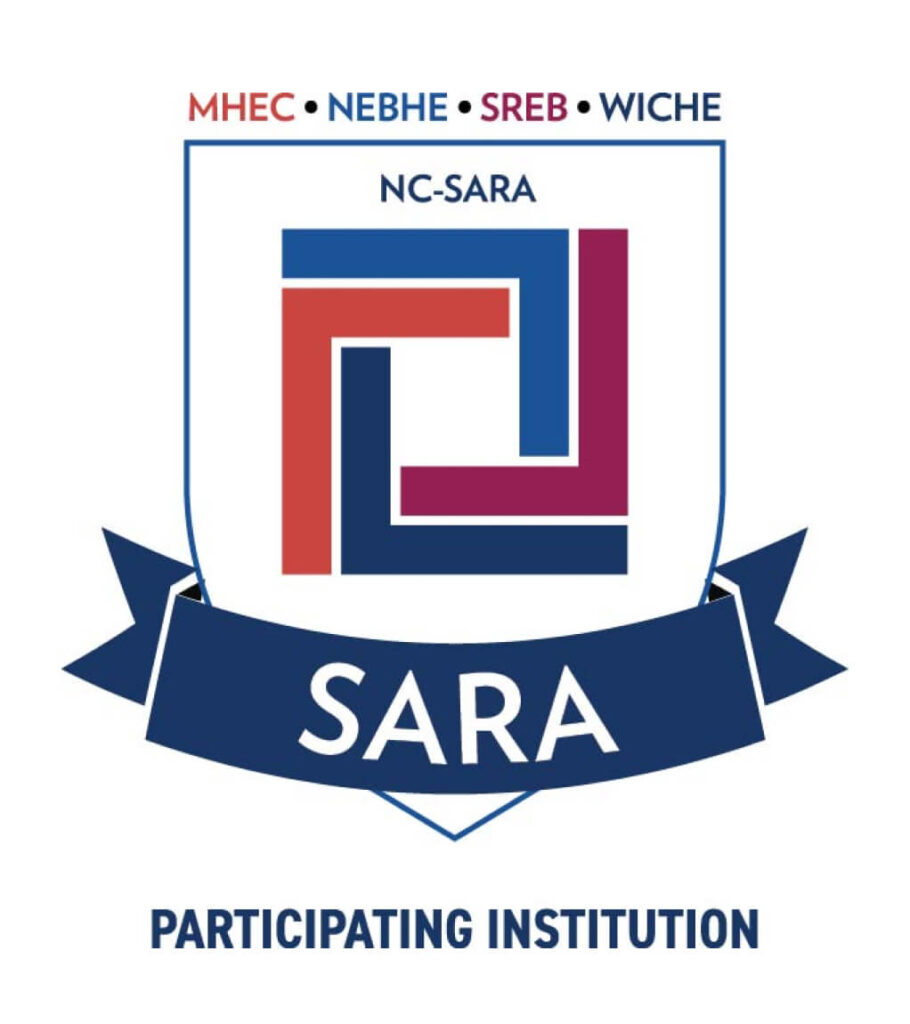NC-SARA

About NC-SARA
Consistent with federal and state regulations, institutions that offer any out-of-state activities related to credit-bearing courses such as online courses, field experiences (e.g., internships for credit, practicums), and recruiting or marketing of programs are mandated to follow the other state’s laws and to obtain any necessary authorization to operate in that jurisdiction prior to conducting the activity.
To assist in the management of these requirements, Mary Baldwin University participates in the National Council for State Authorization Reciprocity Agreements (NC-SARA). NC-SARA established the State Authorization Reciprocity Agreement (SARA) in 2013 to help expand students’ access to educational opportunities and ensure more efficient, consistent, and effective regulation of distance education programs. SARA is a “voluntary agreement among its member states and U.S. territories that establishes comparable national standards for interstate offering of postsecondary distance-education courses and programs. It is intended to make it easier for students to take online courses offered by postsecondary institutions based in another state.”
All guidance provided on this site assumes that MBU’s presence in other states is on-line or specific to a field experience. Establishing an administrative or instructional site (i.e., physical presence) outside of Virginia carries significant and distinct review and approval requirements.
SARA Does Not Address:
- Professional licensing board approval for programs leading to licensing: nursing, teacher education, psychology, etc. (see Professional Licensing below)
- Online offerings provided free and beyond the scope of current regulation of the degree programs of accredited academic institutions (free, non-credit MOOCs, etc.)
- Non-credit instruction
In instances in which an activity is not covered by SARA, MBU must seek authorization or exemption from the state where the curriculum is accessed. MBU works with regulatory agencies in each state and the U.S. Territories to seek authorization, exemption, or permission to offer degree or certificate programs and courses to residents outside Virginia who wish to enroll in MBU distance learning education opportunities.
For more information, visit the NC-SARA About webpage.
To view the States and Territories covered by SARA, visit the NC-SARA directory webpage.
State Licensure Requirements and State Approving Agencies
- Bachelor of Arts in Applied Behavior Analysis and Autism Studies Licensure
- Bachelor of Arts in Elementary Education Licensure
- Bachelor of Arts in Special Education Licensure
- Bachelor of Social Work Licensure Information
- Doctor of Nursing Practice – Certified Registered Nurse Anesthetist
- Doctor of Nursing Practice – Family Nurse Practitioner
- Doctor of Occupational Therapy Licensure Information
- Doctor of Physical Therapy Licensure Information
- Master of Arts in Teaching Licensure Information
- MS in Applied Behavior Analysis Licensure
- MSN – Family Nurse Practitioner
- MSPA Licensure Information
- Post-Bachelor’s Certificate in Applied Behavior Analysis Licensure
- Post Baccalaureate Teacher Licensure (PBTL) Licensure Information
- Post-Master’s Certificate in Applied Behavior Analysis Licensure
- RN-BSN Program Licensure Information
SARA Student Complaint
Every student deserves a positive educational experience. Sometimes a student’s experience may not be what they anticipate, and a student has the right to lodge a complaint or grievance. The institution should ensure that all concerns and complaints of students are addressed fairly and are resolved promptly.
Students who reside in a State Authorization Reciprocity Agreement (SARA) state who have a complaint about MBU must proceed through the MBU Uniform Student Grievance Policy.
If resolution is not found after the student proceeds through the complaint process with the institution, the student should contact the institution’s home state SARA Portal Entity. NC-SARA maintains a directory of SARA State Portal Entity Contacts. SARA consumer protection provisions require the institution’s home state to investigate and resolve allegations of dishonest or fraudulent activity by the state’s SARA-participating institutions, including the provision of false or misleading information.
Examples of types of student complaints that may be brought to a SARA portal entity include, but are not limited to:
- complaints regarding accuracy of job placement data, tuition or fee information, or accreditation
- whether a program meets licensure requirements
- course transfer information
Grade appeals and student conduct appeals are not allowed under SARA.
Professional Licensing
Students considering an online program that leads to a professional license in a state other than Virginia are strongly encouraged to contact the appropriate licensing agency from the state in which they plan to practice before beginning the program to ensure that the program fulfills the licensure requirements of that state.